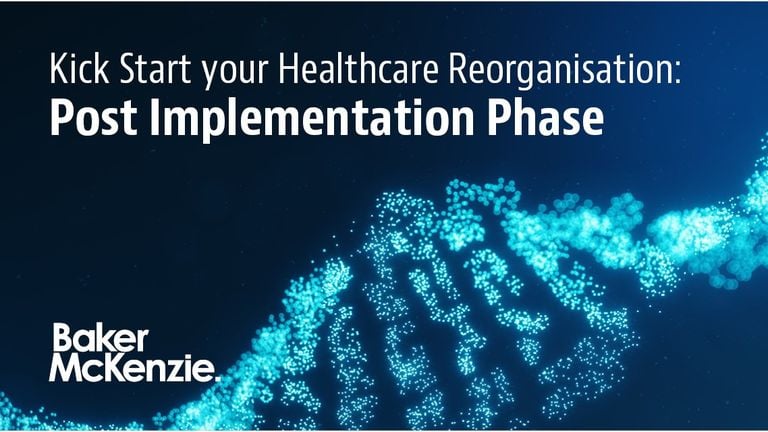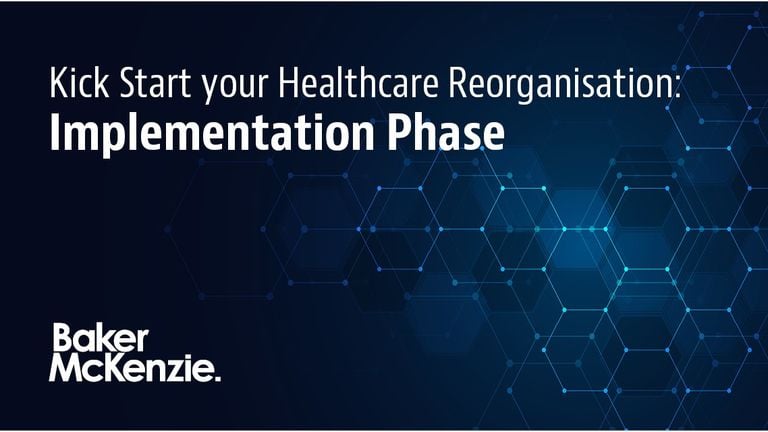Alongside its allies, the EU has implemented a vast volume of sanctions on Russia and Belarus following Russia’s invasion of Ukraine in February 2022. The EU sanctions against both Russia and Belarus are at the core of the EU’s response to Russia’s military aggression and aim to diminish Russian resources and curb Russia’s capacity to continue the war. On 24 June 2024, the EU introduced its awaited 14th sanctions package on Russia and not long…
The conversation on psychedelics around the world continues to evolve, with more and more emerging clinical data highlighting their potential to treat mental health disorders. Last year’s developments – see our previous blog post here – led us to anticipate an upcoming change but yet the legal landscape remains unchanged. In the UK, the independent Parliamentary Office of Science and Technology (POST), which is one of the first independent bodies of its kind in the…
In brief The Commission’s Implementing Act on Joint Clinical Assessments for medicines for human use was finally adopted on 23 May 2024. This is the first out of six Implementing Acts for the EU HTA Regulation. With only seven months to go before the HTA Regulation becomes applicable, developers of medicines within the first wave of products subject to the HTA Regulation will need to consider their strategy for EU assessment and its interplay with…
In brief As we look back at 2023, we reflect on a year marked by significant developments in the legal framework governing the life sciences and healthcare industries in the US. These developments include the implementation of the Medicare Drug Price Negotiation Program under the Inflation Reduction Act; the rise of artificial intelligence in drug development and manufacturing; the evolving landscape of US Food and Drug Administration regulation and enforcement of laboratory-developed tests; and the…
26 December 2023 marked the enactment of the annual French Social Security Financing Bill for 2024 (LFSS). As every year, the LFSS introduces a number of changes which could have a significant impact on companies in the life sciences sector. This year’s LFSS includes amongst other, new measures to fight shortages, a reduction of the maximum contribution payable under the safeguard clause for certain medicines and a new clawback mechanism for manufacturers of medical devices…
On 24 October 2023, the European Commission issued a communication setting out short-term and medium/longer-term actions to prevent or mitigate critical shortages at EU level, with a particular focus on the most critical medicines for which supply needs to always be assured in the EU. Actions to be taken in the short term include the following: The immediate deployment of a voluntary solidarity mechanism to support member states experiencing shortages. This scheme will allow member…
The UK government has issued proposals for a new licensing regime for currently unregulated cosmetic procedures whilst also intending to classify and regulate certain cosmetic products such as dermal fillers as medical devices. The government has brought forward an amendment to the Health and Care Act 2022 that gives the Secretary of State for Health and Social Care the power to bring into force a licensing scheme in England for non-surgical cosmetic procedures. The purpose…
In the third and final post of our ‘Kick Start your Healthcare Reorganisation’ series, we focus on the post-implementation matters often encountered on healthcare and life sciences reorganisations. These range from the many regulatory requirements through to ensuring steps are taken to realise the maximum value from the reorganisation. These post-implementation matters often bring us back to, and illustrate the importance of, careful early planning and seamless implementation. The significant consequences of any change of…
Following a consultation earlier in the year, the UK government has published draft legislation on the proposed design of a merged R&D tax relief scheme. The draft proposes that the existing schemes – the R&D expenditure credit (RDEC) and the SME R&D relief – be merged into a single scheme that would operate as an above-the-line expenditure credit (in line with the current RDEC). Given the value of R&D tax relief to the life sciences…
In the second post of our ‘Kick Start your Healthcare Reorganisation’ series we focus on the implementation phase of a healthcare and life sciences reorganisation and specifically the following three areas: document execution; funds flow; and operational go-live. Whilst each area is individually significant, and is likely to have its own dedicated workstream, it is important to recognise that they each go hand in hand when looking to achieve smooth (and successful) implementation. Document execution…









